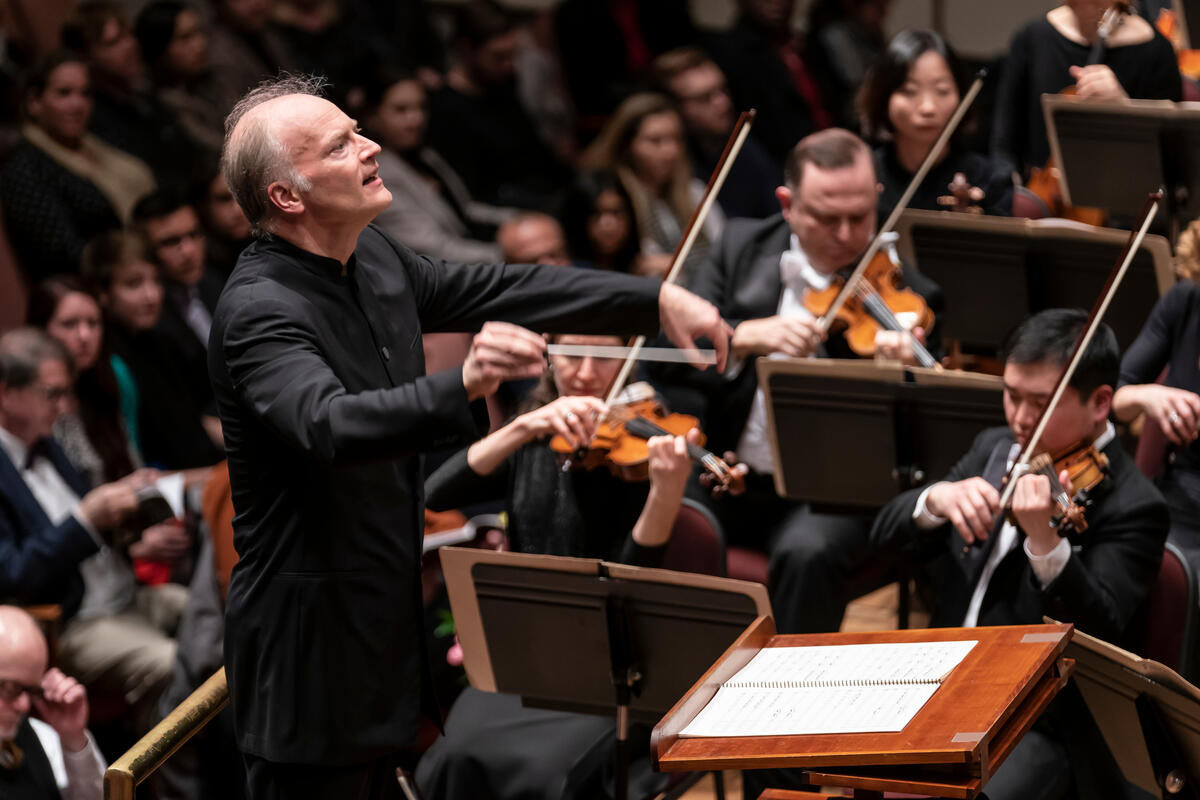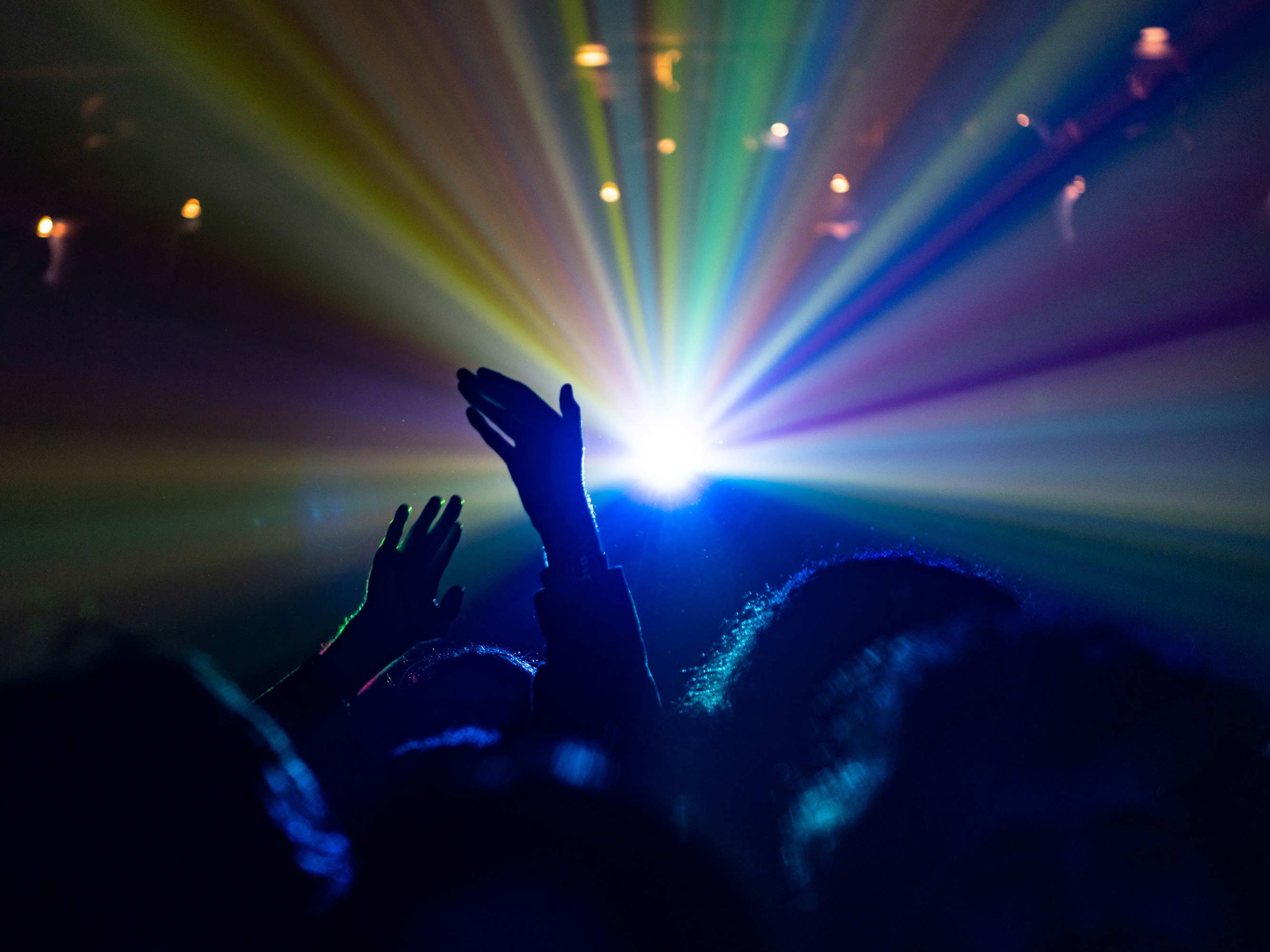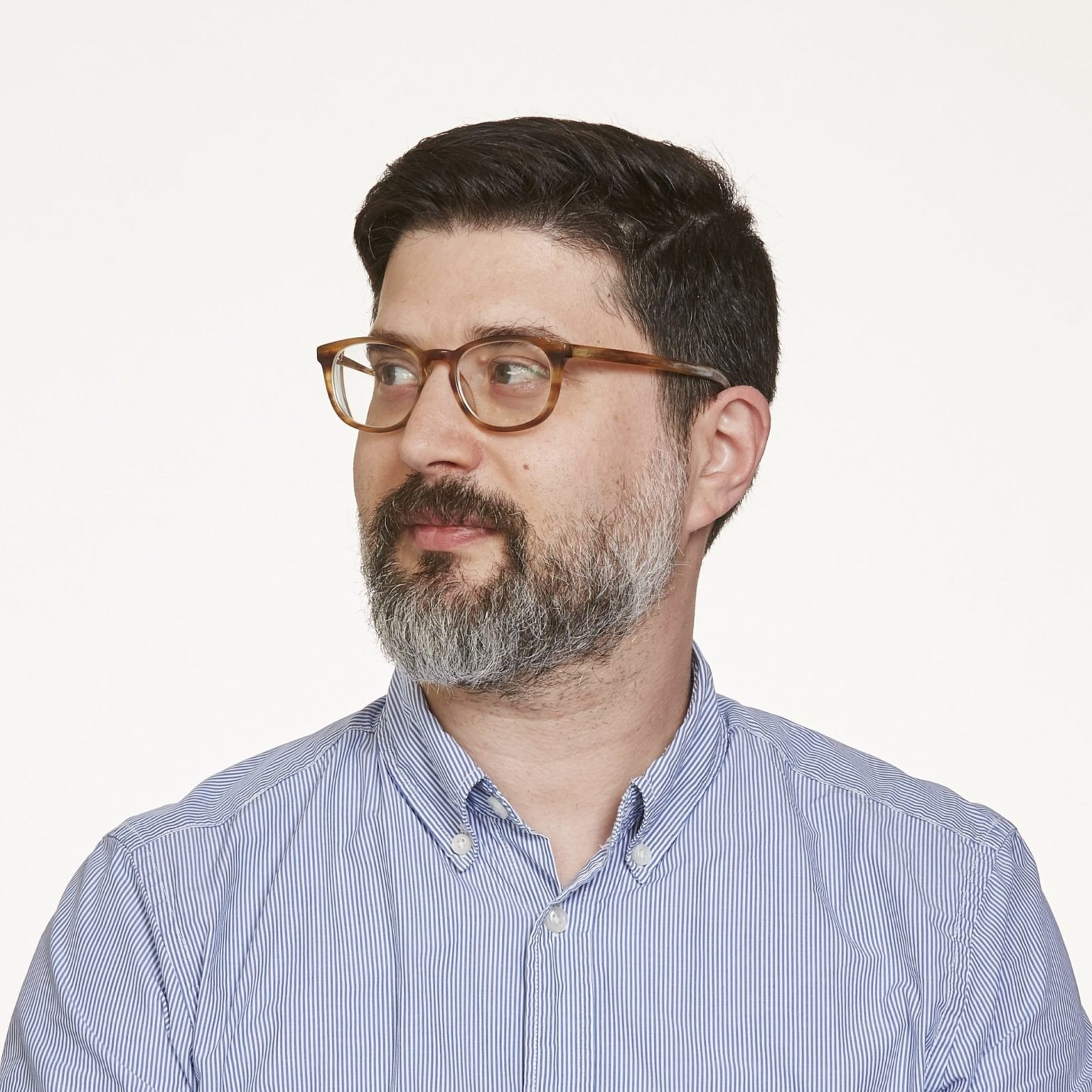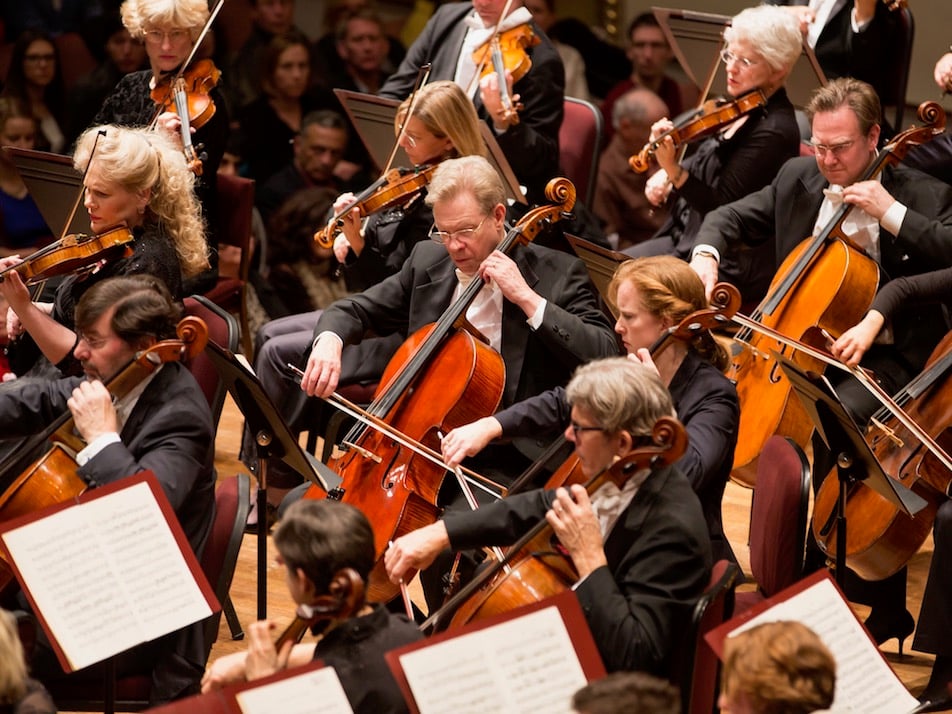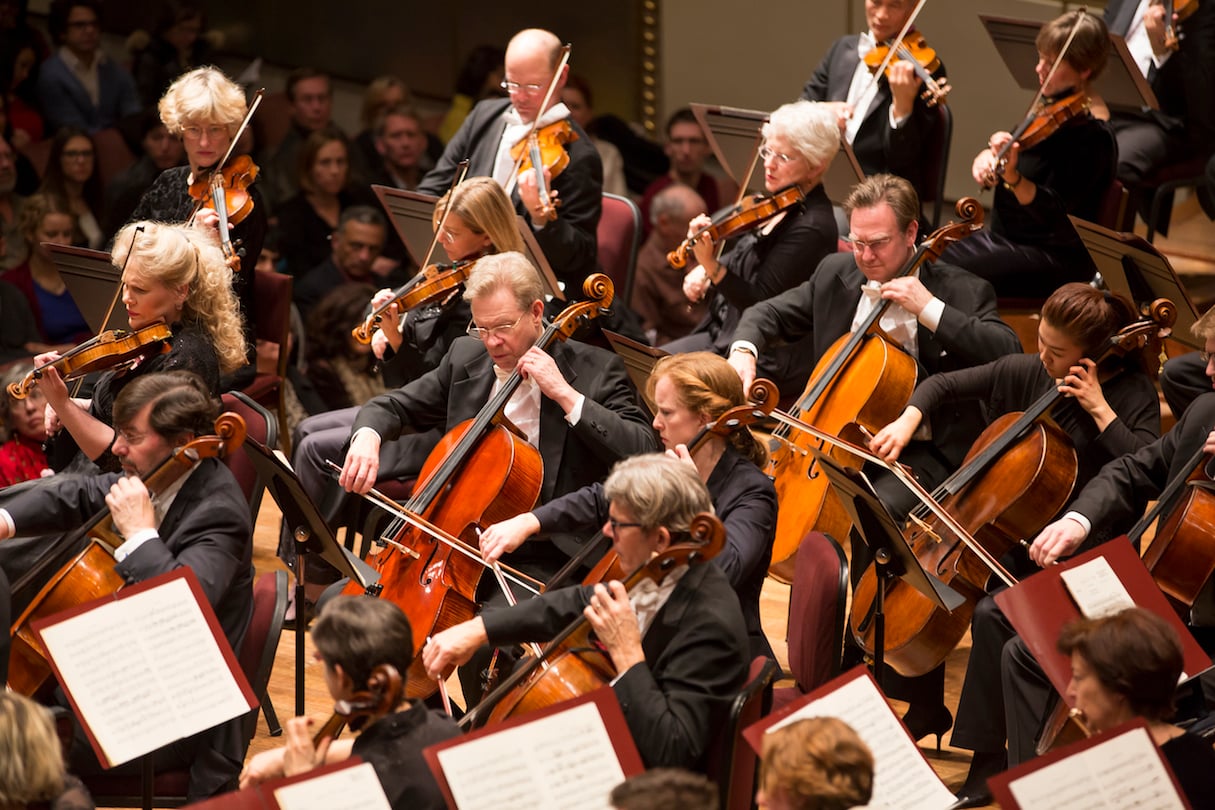About DC Music issue 2022
Check out our entire DC Music issue here, including 20 classic albums, 5 intriguing new artists, and a huge list of local venues.
The DC area has a proud tradition of homegrown, do-it-yourself record labels: Dischord, Teen-Beat, Sister Polygon, and many more. New to that list: the National Symphony Orchestra. The city’s premier classical-music outfit now has its own little record company.
The label—which records and releases CDs and digital tracks of live NSO performances—kicked off in early 2020 with a recording of Dvořák’s “New World” Symphony and Aaron Copland’s “Billy the Kid,” but then the pandemic stalled further projects. This summer, things are ramping up once again. On June 24, the label is releasing a digital recording of Gianandrea Noseda and the NSO performing George Walker’s Sinfonia No. 4, the first in a series of all five Walker sinfonias. (A CD will follow.) Later this year, it will begin releasing recordings of all nine Beethoven symphonies.
Much like those other Washington-based DIY labels, the NSO is spotlighting some local talent—in this case Walker, who was born in 1922 and grew up in Columbia Heights. A piano prodigy, he was the first African American to graduate from the Curtis Institute of Music and the first to earn a doctorate from the Eastman School of Music. He then had a long career as a music professor, while also composing a significant body of work.
In 1996, Walker became the first African American to win the Pulitzer Prize for Music. He died in 2018 at age 96, and in recent years, his music has become increasingly appreciated. Yet he remains under-recorded. “When you start to turn the key” by spotlighting less recognized work, “after that, the door will be open,” says Noseda, the NSO’s music director. Walker’s compositions “are adventurous, but there is also a very solid control of the shape of the architecture of the piece, which I adore in any music. You see the craftsmanship. The sound that comes out from the sinfonias is particular—you cannot mix it up with others. That is a signal of a good composer.”
For the moment, the Walker and Beethoven recordings are the only releases on tap, but Noseda is playing around with several other ideas. What if, for example, the NSO recorded a disc featuring pieces written by Europeans after they moved to the US? Perhaps it could include music by the likes of Arnold Schoenberg and Igor Stravinsky, both of whom ended up living in Los Angeles.
As an Italian citizen conducting an American orchestra, Noseda is intrigued by such transatlantic connections. But he also simply loves the idea of a recording as a snapshot—an orchestra performing in front of an audience at a certain time and in a particular place. When he and the NSO recorded some of the Beethoven and Walker pieces in January, “there was a very palpable excitement in the room—not only from our perspective as musicians but also from the audience,” Noseda says. “After two difficult years, just to be together and to play gives some extra energy to that performance. I listened to the [recording], and I can still feel it: that extra gear in the engine, the attention and the commitment of the playing.”
Thanks to the NSO’s label, people who weren’t in the room will soon be able to experience it, too. “A recording is a photograph of that moment,” says Noseda. “I think it’s important to leave a legacy.”
This article appears in the July 2022 issue of Washingtonian.

